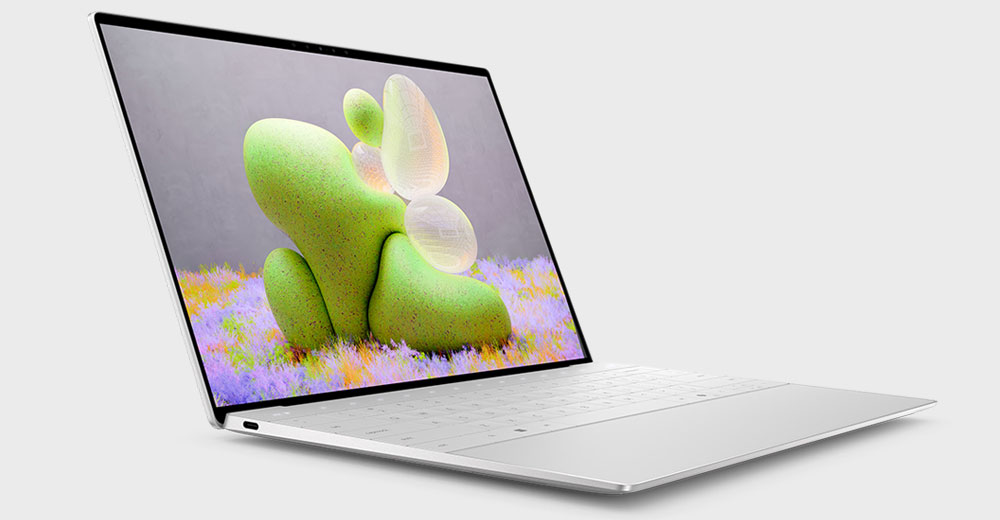I was at Intel Vision last week. Intel’s recent effort continues to remind me of Intel back in the Andy Grove days, with one exception that I think is the source of the firm’s current difficulties. What Intel needs is a Dennis Carter and an adequate marketing budget for AI, the biggest tech wave ever to hit the segment. Unfortunately, neither is in evidence.
In addition, I’ve been concerned that Michael Dell retired in place, causing a lot of execution issues at Dell and causing it to lag behind its peers. Well, this is the second event where Michael Dell himself powerfully highlighted Dell (the last was at Nvidia’s event and seemed almost accidental). But this time, they hit it out of the park. It was nicely planned and well executed, suggesting Michael Dell is back. Now, Dell again has one of the most successful CEOs in history backing its plays.
However, there are troubles ahead for Intel and the industry in general that I don’t think folks are taking seriously. I’ll cover those as well this week.
Finally, I’ll close with my Product of the Week, the coolest laptop I saw at Intel Vision: the new Dell XPS 13 with the latest Intel Core Ultra processor.
Intel’s Strategic Execution and Leadership in US Tech
Intel is executing at a level that reminds me of Andy Grove’s days at the company, with one exception: It doesn’t have a Dennis Carter. I could argue it doesn’t have a Justin Ratner, either, but he came much later.
However, in terms of trimming down the company to fight and execute on hardware, Intel is executing as quickly and as well as it did back when I worked there in the 1990s.
Intel made tough decisions critical for growth and survival, like licensing x86 to AMD. Today, Intel is working to build out fabs and foundries to assure its future and the future of the tech industry in the U.S. and worldwide should there be a war between China and Taiwan. More than any other company I work with, Intel is doing the most to assure U.S. technology leadership.
Intel’s Core Ultra processors are the first to market in the PC space for the broad market. Microsoft’s Surface Studio was the first, and while impressive, it is more of a developer’s bridge product and doesn’t have the reach the Intel OEMs do.
As a long-term investment in the future of U.S. technology, Intel is suffering because it isn’t receiving the credit it deserves. That’s a marketing problem, yet while the company is massively funding its strategic initiatives, it’s simultaneously underfunding its image and brand marketing.
Intel is not the only one. Microsoft is also underfunding marketing, and this trend seems to run across the segment, leaving everyone open to some of the very disruptive problems I’ll discuss below.
Michael Dell Is Back!
I’ve been very worried about Dell Technologies lately as it seemed to be covering up problems rather than addressing them. This concern became particularly obvious when I saw Dell’s initial AI efforts, which appeared to be more smoke than substance.
It seemed as though CEO Michael Dell had retired in place, potentially leading to the same kind of problem I experienced at IBM under John Akers, who was the only IBM CEO ever fired (he didn’t retire in place, but he became operationally isolated, creating a similar leadership gap). I felt Michael Dell either needed to step up or out, and, as you might imagine, Dell did not receive that well.
However, I saw the old Michael Dell at Intel Vision, and he is clearly stepping up now. I’m pleased that my old friend is back in the game because the last time we had a wave the size of AI hit the industry, a lot of large technology companies were either crippled or died. However, founders are incredibly powerful in their ability to pivot a company to new opportunities and against looming threats.
Michael Dell is back, which bodes well for Dell’s future in what may be the riskiest time in history for every tech company. While many folks are comparing the AI wave to the Windows 95 launch, it is much bigger and more dangerous. We’ll see if Michael Dell has another “go big or go home” moment left in him. Based on what I saw at Intel Vision, he might have the necessary edge.
3 AI-related Problems Facing the Tech Industry
I’ll always be grateful to three companies that stepped in when I first started: Intel, Dell, and Microsoft. I’m also ex-IBM, and once IBM Blue, you will always be a little IBM Blue. But my loyalty to these firms means I tend to focus on what I think they should know, not merely what they want to hear — and that has landed me in a lot of trouble over the years.
For instance, constantly telling Steve Ballmer that if he didn’t correct his trajectory, he would get fired put me on the wrong side of his famous temper.
While it is problematic when an analyst is wrong, it can be a ton worse when we are correct, and a negative outcome we’ve warned about happens because we aren’t listened to. I learned that you could make a living externally telling folks what they need to hear, but internally, that’ll get you fired. While that shouldn’t be the case, sadly, it is.
Despite the resistance to such warnings, there are pressing issues that the industry cannot afford to ignore as it ventures further into the era of artificial intelligence. Each stems from a fundamental misunderstanding or misapplication of AI technologies. These issues not only reflect missed opportunities but also pose significant risks to the stability and future of the tech sector:
Problem 1: Both smartphones and PCs are based on pre-AI concepts, and initial efforts consist of companies grafting AI onto existing platforms.
The first automobiles were called horseless carriages because they were. The auto industry started with folks who built the frame and engines and others who built the bodies, which is remarkably similar to how we build PCs today. But eventually, cars and everything else became monolithic and purposely built from the ground up. That’s how most things are built today, including smartphones.
With the legendary designer from Apple, Jony Ive, and the current head of OpenAI, Sam Altman, teaming on an AI-powered personal device, there is a real risk that the entire WinTel thing could collapse and take Apple with it. This poses an existential threat to both the PC and smartphone industries.
Problem 2: Marketing is underfunded across the tech industry.
While we are comparing the AI PC to Windows 95, AI is potentially far bigger. We weren’t worried about Windows 95 taking massive numbers of jobs, for instance, or becoming Skynet and moving far faster than the fictional Skynet did. Windows 95 had a $400 million ($800 million adjusted for inflation) marketing budget, but it was underfunded in terms of support. There is no sign of a similar effort here.
You may recall that one of the reasons the Windows 95 launch momentum died was that Microsoft cut the marketing budget rather than better funding support, which led to massive problems with that launch. The same thing is highly likely to happen here because it doesn’t appear that a critical mass of folks learned from those mistakes as they manage this launch, so there’s a high probability of the launch going badly.
Problem 3: People are doing insane things with AI.
Has anyone seen “The Terminator?” That movie wasn’t intended to be a to-do list for how to build an AI. I like living, thank you very much, but people are creating robotic dogs with flame throwers and hostile AIs just for the heck of it.
I found this scene cut from “Terminator 2” that is worth watching. It could be an ad for what some idiots are doing today. I don’t think this will end well for us any more than it did for the folks in that movie. Maybe watching “Terminator 2” should be required for anyone working on these projects.
Seriously, one of the stories we were sharing over lunch at Intel Vision was of a guy who, in 2008, gave an eight-year-old an Uzi submachine gun to shoot, but the child ended up shooting himself. Let’s not make that same mistake at scale, please.
Wrapping Up
Intel is improving significantly, and it reminds me of Andy Grove Intel, which helped found the PC industry. Michael Dell is back, and it’s a good thing he is because the AI wave will result in the failure of many companies across a variety of industries, much like the PC and client-server wave did in the 1990s.
However, there are significant problems with how this technology is coming to market and the lack of restrictions over what folks are doing with it. Creating Skynet to see what will happen is a bad thing. I’d prefer it if researchers just watched “Terminator 2” rather than recreating it in real life. I’m just saying.

The New Dell XPS 13 With Intel Ultra
I’ve been covering PCs since there were PCs. It’s been about two years since I found a PC I lusted after, which was the HP Folio.
At Intel Vision, I saw a lust-worthy laptop: the new Dell XPS 13, which is amazing-looking and high-performing.

The Dell XPS 13 laptop (Credit: Dell)
It uses the new Intel Ultra AI-ready processor and is sleek and attractive. While it isn’t as light as my HP Folio, nor is it covered in leather like the Folio, it is beautiful.
What really struck me was how Dell managed the function keys, which change personalities at the touch of a button. It gives the laptop a huge “wow” factor; I’m a big believer in using a PC you are proud of and want to show off because I know folks will take better care of it.
The Dell XPS 13 has decent battery life and is reasonably priced for a halo product (halo products are designed to create interest in the brand and are typically priced higher to be more exclusive). It’s one of a growing number of laptops with the forward-looking Intel Ultra AI-ready processor.
If you want a PC that is more future-proof than most currently on the market, one you can be proud of and that won’t break the bank, consider the new Dell XPS 13, which is my Product of the Week.























































